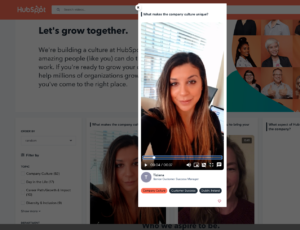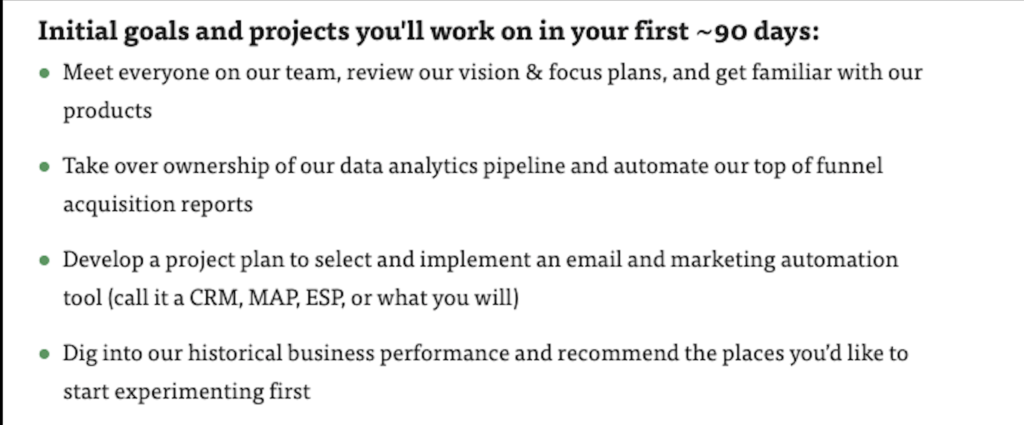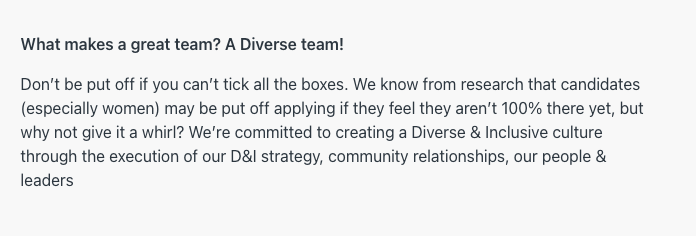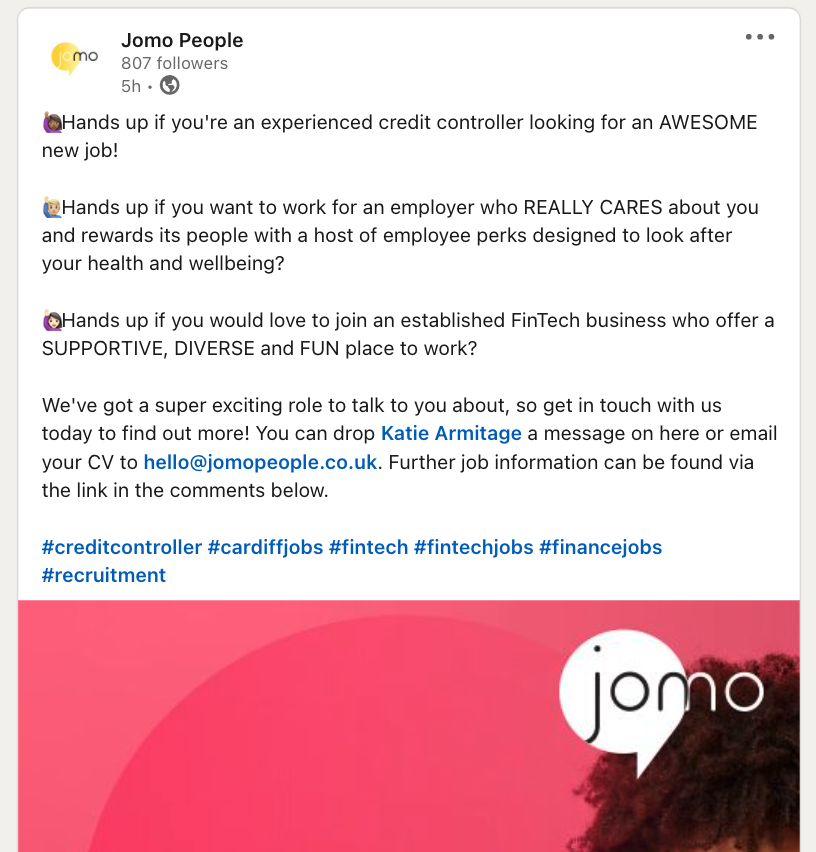Come on, we’ve all been there. You know, when you take a sneaky look to see how other companies are positioning their roles and coming up with their job advert titles. “Oh, they’re calling them THAT now, are they?”
We’ll scroll through Glassdoor reviews and see what job titles are popular at the moment, all to get a glimpse of what’s working and what’s not. And, ultimately, to appear relevant and snap up the best talent.
Take the challenge of hiring for remote workers who would usually work in a team environment as an example. How do you get across your culture in an online scenario? How do you demonstrate your brand, your culture, and why you’re the right business – when you’re hiring someone who feeds off a team environment?
Your job adverts – actually, scrap that – your employer branding – needs to work harder than ever before. Yet – why is it – (sorry, I feel a rant coming on) – that when it comes to job adverts we’ve always conveyed what the business wants the candidate to know about the role, and not the other way around?
Quite often you’ll see adverts listing job requirements, roles, responsibilities. Rarely will you see an advert or proposition that tells a candidate what Paula is actually like as a manager, what it’s like to work there when the pressure is on, and what genuine responsibility they’ll have. (You know, the stuff the candidate wants to know.)
But when these employers DO step out of their comfort zone, when they do work with a recruitment partner that just gets what this type of person needs and communicates this effectively…that’s when you have to take notice.
Let’s get real, though. The market is tough. There’s a shortage of great candidates available because they’re staying put. They’re not risking looking for a new role because we’re still operating in an uncertain employment market. But, you still have to recruit. You still need to grow your team.
At Jomo People one of the things we pride ourselves on is knowing the candidate market, in and out, back to front. We are always in contact with candidates. I’m not paying lip service, we genuinely see how the market is doing. Culture is always one of the important things people want to hear about when knowing what candidates are looking for.
It’s through these conversations, I’ve found some examples of how employers are changing their job adverts to highlight the aspects of roles you’d typically learn in your first week. Some examples are small – you may even already be doing it – but others may just get you thinking differently.
How are job adverts changing to communicate culture?
1. Hubspot’s employee videos that give a real insight to culture
Okay, so we know day in the life videos on your careers site isn’t anything new. That said, the videos Hubspot are currently putting out there from its team are something else.
You can filter to watch videos by people who work in specific offices as well as what they’ve got to say about certain aspects of its culture. It’s a great example of showing what they stand for, delivered in a way (video) that’s guaranteed to attract a particular audience.

2. Wildbit’s inclusion of 90-day goals and projects the candidate will get involved in
Why wait to share what someone’s going to get involved in until the interview stage?
Wildbit, based in the US, put a job advert out recently for a marketing manager. They tell the potential candidates straight away what’s expected from them in the first 90 days. They’re clear about what progress looks like. There’s no ambiguity, only direction.

3. Target Group’s confidence-boost for candidates with imposter syndrome
I’m sure you’re aware of studies that have found men will apply for a job if they only meet 60% of the requirements, whereas women will only apply if they meet 100%. I hate to think about how many talented people haven’t put themselves forward for roles.
Luckily, the team at Target are tackling this head on and are urging candidates to apply with this wording to show they’ve got a diverse and inclusive culture.

4. Monzo’s transparency and flexibility around balance
Monzo ‘gets’ work/life balance. They get the importance of wellbeing in the workplace. Which is evident through the many wellbeing and mental health events they run. But it’s not just noise, they’re clearly committed to this and include it in their job adverts.
If your ideal candidates value work/life balance, what are you including in your adverts to really demonstrate this?

5. Wildbit including the names of the team mates you’ll be working with
I know, I’ve already mentioned them but seriously, they’re going the extra mile when it comes to showing culture and fit. In their job adverts, they list the people the successful hire will be surrounded by, supported by and encouraged by. They’re all clearly named – complete with LinkedIn profiles – to give some context to how the role will be structured.

Here’s a quick tip you can apply to your own advert that works for us.
We partner with contact centres to attract talent. Talking with candidates – both pre COVID and right now – helps us to understand what it is about the culture a candidate wants to know. Are they risk averse? Do they want to hear that you’re going back to the office (when it’s safe)? Do they value work/life balance?
Here’s an example of how we get this across. It really is as simple as listing the right benefits at the top of the advert. (Bear in mind online reading habits; people will only spend a few seconds reading your advert, so get the important stuff right at the top!)

So, when creating your next advert, think about what it is the candidate would want to know to consider moving. Have you seen any interesting takes on job adverts or want to learn what your contact centre candidates are interested in? Contact me at hello@jomopeople.co.uk – I love talking about this topic!
At the end of the day, consider yourself a marketer – know your audience, know what is important to them, and why.


